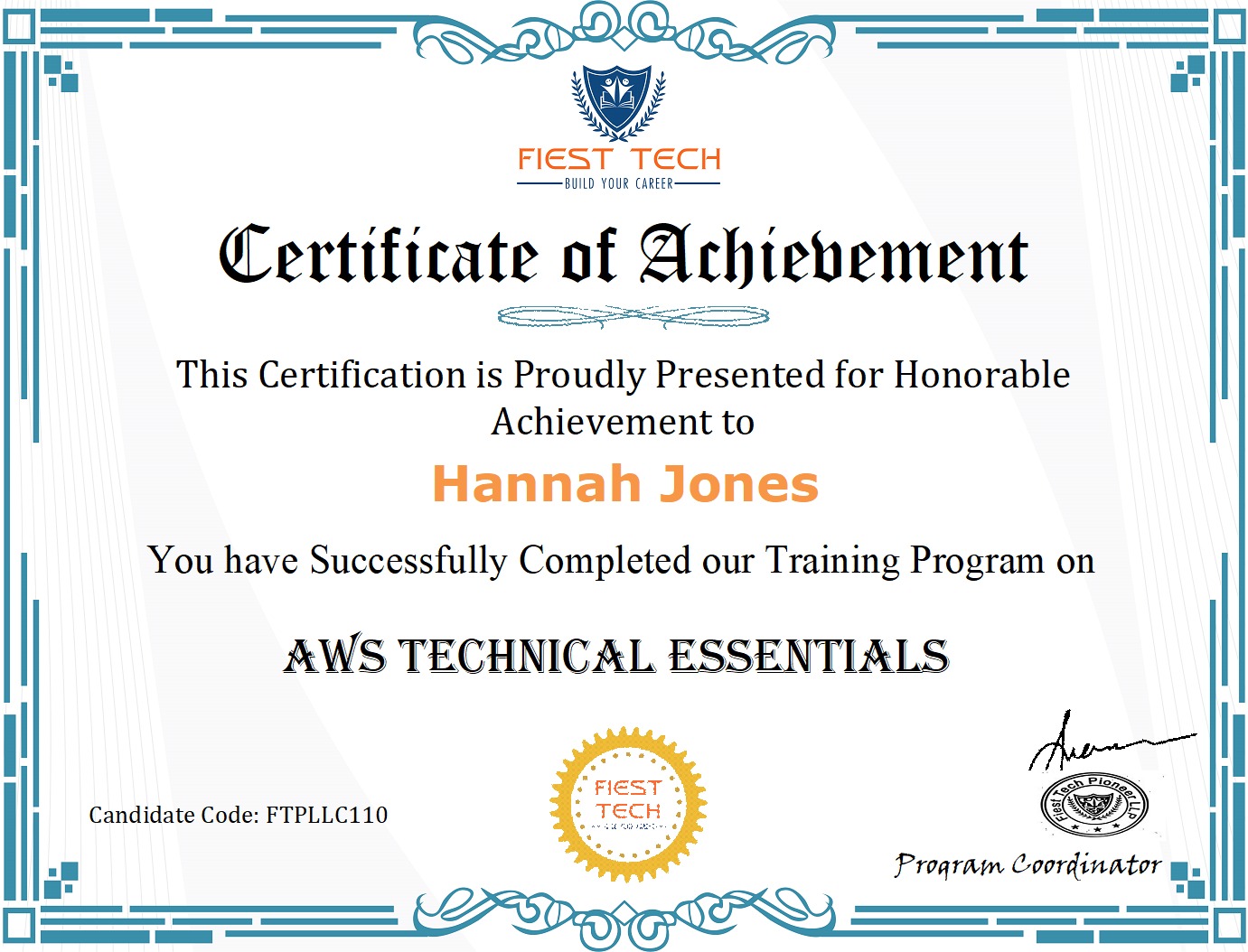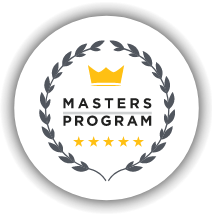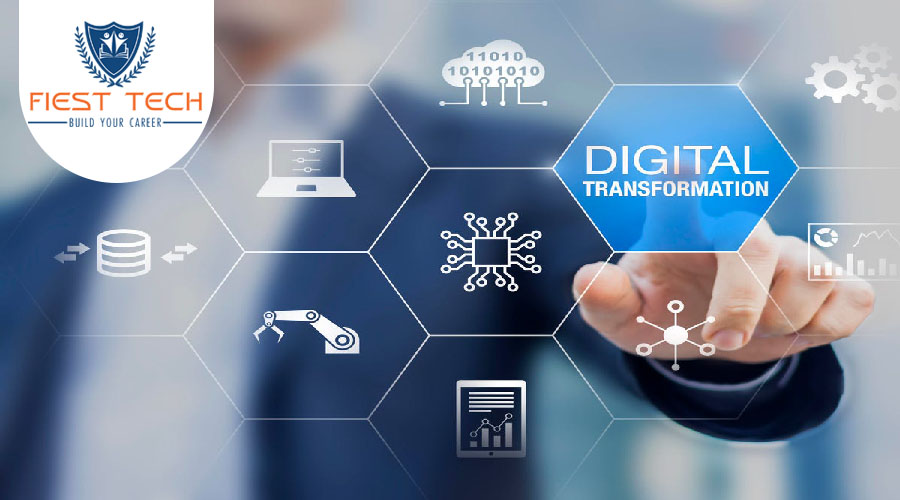AWS SysOps training Course Overview
This AWS SysOps training is a prerequisite to the DevOps Engineer Certification. You will learn how to migrate on-premise applications to AWS, control the flow of data to and from AWS, master the AWS management console, implement operational cost controls, and enhance your ability to leverage AWS resources and services efficiently.
AWS Certified professionals gain access to the AWS Certified community, allowing you to network with other certified individuals, attend exclusive events, and share experiences.
Aws Sysops Certification Training Key Features
At Fiesttech, we value the trust of our patrons immensely. But, if you feel that this Aws Sysops Certification Training does not meet your expectations, we offer a 7-day money-back guarantee. Just send us a refund request via email within 7 days of purchase and we will refund 100% of your payment, no questions asked!
- Amazon Elastic Compute Cloud (EC2)
- Elastic Load Balancing (ELB)
- Amazon Virtual Private Cloud (VPC)
- AWS Identity and Access Management (IAM)
- AWS CloudWatch
- AWS CloudTrail
Skills Covered
- AWS Systems Manager
- AWS Simple Notification Service (SNS)
- Disaster Recovery and Backup
- Scaling and High Availability
- Decoupling Architectures
- Elastic Beanstalk and AWS OpsWorks
- Resource Tagging
- Cost Optimization
- Analyze CloudWatch metrics
- Data integrity and security
- AWS operational best practices
- Operational cost control measures
- AWS usage costs
Benefits
AWS has been dominating the overall cloud infrastructure market for years now, with more than 30 percent share. The talent crunch in cloud computing space is growing and getting certified in AWS will demonstrate your skills and enhance your cloud computing career
Annual Salary
Hiring Companies

GO AT YOUR OWN PACE
Training Options
Explore all of our training options and pick your suitable ones to enroll and start learning with us! We ensure that you will never regret it!
Course Curriculum
Eligibility
Systems administrators with at least one year of experience managing or building applications in the cloud are ideal candidates for the AWS SysOps Associate Certification training program.
Pre-requisites
To apply for the AWS SysOps Associate Certification, you must complete the AWS Technical Essentials course OR have significant hands-on professional experience in operating AWS based applications. You should also have the ability to define a solution to be built and operated on AWS, and experience provisioning, operating and maintaining systems running on AWS. You should also be capable of providing AWS operations and deployment guidance and best practices throughout the lifecycle of a project.
Course Content
Live Course
Self Paced
-
2.01 - 1.01 The Course Overview
02:49 -
2.02 - 1.02 Introduction
01:49 -
2.03 - 1.03 Set Up A Free AWS Tier Account
01:49 -
2.04 - 1.04 Set Up Your Environment
01:49 -
2.05 - 1.05 Amazon CLI Tools for PowerShell and SDKs
01:49 -
2.06 - 1.06 The AWS Global Infrastructure
01:49 -
2.07 - 1.07 Create a Billing Alarm
01:49
-
3.01 - 2.01 Introduction to CloudWatch: Part One
02:49 -
3.02 - 2.02 Introduction to Cloud Watch: Part Two
01:49 -
3.03 - 2.03 Monitoring EC2
01:49 -
3.04 - 2.04 Monitoring EBS
02:49 -
3.05 - 2.05 Monitoring ElastiCache
01:23 -
3.06 - 2.06 Monitoring ELB
02:49 -
3.07 - 2.07 Monitoring RDS
02:49 -
3.08 - 2.08 AWS Trusted Advisor
01:49 -
3.09 - 2.09 AWS CloudTrail: Part One
01:49 -
3.10 - 2.10 AWS CloudTrail: Part Two
01:49 -
3.11 - 2.11 AWS Config
01:49 -
3.12 - 2.12 AWS Organization and Consolidated Billing
02:49 -
3.13 - 2.13 Monitoring AWS Charges
01:49
-
4.01 - 3.01 Amazon SQS -Building Decoupled Architecture
02:49 -
4.02 - 3.02 Amazon Simple Notification Service
01:49 -
4.03 - 3.03 Regional Specific High Availability
02:49 -
4.04 - 3.04 Bastion Hosts and High Availability
02:49 -
4.05 - 3.05 Multi-Region High Availability
01:49 -
4.06 - 3.06 Connectivity Options for High Availability
02:49
-
5.01 - 4.01 Amazon Elastic Compute Cloud EC2
02:49 -
5.02 - 4.02 Launching an EC2 Instance
01:49 -
5.03 - 4.03 Storage for EC2
01:49 -
5.04 - 4.04 Expand an EBS Volume
01:49 -
5.05 - 4.05 Creating an AMI
02:11 -
5.06 - 4.06 Additional EC2 Concepts
01:49 -
5.07 - 4.07 Amazon EC2 Container Service
01:49 -
5.08 - 4.08 Amazon Elastic Beanstalk
01:49 -
5.09 - 4.09 Amazon Lambda
01:49 -
5.10 - 4.10 Amazon Lightsail
01:23
-
6.01 - 5.01 Introduction to Databases on AWS
02:49 -
6.02 - 5.02 Amazon RDS: Part One
01:23 -
6.03 - 5.03 Amazon RDS: Part Two
02:49 -
6.04 - 5.04 Amazon RDS: Part Three
01:49 -
6.05 - 5.05 Amazon RDS: Part Four
02:11 -
6.06 - 5.06 Amazon Aurora
02:49 -
6.07 - 5.07 Amazon DynamoDB: Part One
01:49 -
6.08 - 5.08 Amazon DynamoDB: Part Two
01:49 -
6.09 - 5.09 Amazon Redshift
01:23 -
6.10 - 5.10 Amazon ElastiCache
01:49
-
9.01 - 8.01 Amazon S3 Introduction
02:49 -
9.02 - 8.02 Create an S3 Bucket
02:49 -
9.03 - 8.03 Access Policies
01:49 -
9.04 - 8.04 Versioning
01:49 -
9.05 - 8.05 Lifecycle Policies
01:49 -
9.06 - 8.06 Cross Region Replication
01:49 -
9.07 - 8.07 MFA Delete and Advanced Protection Strategies
01:23 -
9.08 - 8.08 Cross Origin Resource Sharing
01:49 -
9.09 - 8.09 Encryption
01:23 -
9.10 - 8.10 Amazon Storage Gateway
01:23 -
9.11 - 8.11 Amazon Snowball
01:49
-
10.01 - 9.01 AWS Shared Security Model
02:49 -
10.02 - 9.02 AWS Compliance Program
01:49 -
10.03 - 9.03 AWS Identity and Access Management
01:23 -
10.04 - 9.04 AWS CloudTrail for Security
01:49 -
10.05 - 9.05 AWS WAF Inspector and Trusted Advisor
02:49 -
10.06 - 9.06 AWS EC2 Security
01:49 -
10.07 - 9.07 AWS KMS and CloudHSM
01:49
-
11.01 - 10.01 Amazon VPC: Part One
01:49 -
11.02 - 10.02 Amazon VPC: Part Two
02:49 -
11.03 - 10.03 Launch an Amazon VPC
01:49 -
11.04 - 10.04 Amazon VPC Peering
01:49 -
11.05 - 10.05 Amazon VPC Endpoints
01:49 -
11.06 - 10.06 Amazon VPC Flow Logs
01:49 -
11.07 - 10.07 Amazon VPC Direct Connect
01:49 -
11.08 - 10.08 Amazon CloudFront
01:49 -
11.09 - 10.09 Amazon Route Fifty Three
01:49
-
12.01 - Lesson 01: Course Introduction
02:49 -
12.02 - Lesson 02: Getting started with SysOps
. -
12.03 - Lesson 03: Deployment and Provisioning
. -
12.04 - Lesson 04: High Availability
. -
12.05 - Lesson 05: Storage and Data Management
. -
12.06 - Lesson 06: Security
. -
12.07 - Lesson 06: Security
. -
12.08 - Lesson 07: Networking and Route53
. -
12.09 - Lesson 08: VPC's
. -
12.10 - Lesson 08: VPC's
. -
12.11 - Lesson 09: Automation
. -
12.12 - Lesson 09: Automation
. -
12.13 - Lesson 10: Additional features
.

Aws Sysops Certification Training Exam & Certification
To become an AWS SysOps Administrator Associate, you must register for and pass the certification exam at any Kryterion testing center at over 750 locations globally.
The registration fee for AWS SysOps Administrator Associate certification exam is $150.
To apply for the AWS SysOps Administrator Associate certification, you must fulfill the following prerequisites:
- Complete AWS Technical Essentials course or significant hands-on professional experience in operating AWS-based applications
- Experience provisioning, operating and maintaining systems running on AWS
- Ability to define a solution to be built and operated on AWS
- Capabilities to provide AWS operations and deployment guidance and best practices throughout the lifecycle of a project

FAQS
Aws Sysops Certification Training Course FAQs
All of our highly qualified trainers are AWS certified, with more than 15 years of experience in training and working in their domain. Each of them has gone through a rigorous selection process, which includes profile screening, technical evaluation and a training demo before they qualify as FiestTech trainers. We also ensure that only those trainers who maintain a high alumni rating continue to train for us.
No. The exam fee is not included in the course fee.
Related Programs
Cloud Computing Related Programs






